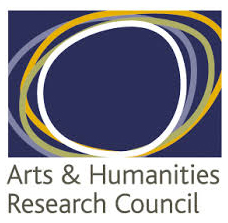A new Arts a nd Humanities Research Council funded study undertaken by a group of academics from across the UK has called for a wide-ranging government review into what requirements should be made of schools around providing assemblies, including investigating the rational for schools being required to provide daily religious worship. The authors have called upon the review to consider what explicit needs of society, schools and pupils should be met though any future requirements, and in what ways the needs may be best advanced though the school curriculum as a whole. The study found current arrangements to be incoherent and to infringe upon pupil’s freedom of religion or belief.
nd Humanities Research Council funded study undertaken by a group of academics from across the UK has called for a wide-ranging government review into what requirements should be made of schools around providing assemblies, including investigating the rational for schools being required to provide daily religious worship. The authors have called upon the review to consider what explicit needs of society, schools and pupils should be met though any future requirements, and in what ways the needs may be best advanced though the school curriculum as a whole. The study found current arrangements to be incoherent and to infringe upon pupil’s freedom of religion or belief.
The call follows a report in June by national sociology of religion expert, Professor Linda Woodhead, and former Secretary of State for Education, Charles Clarke, titled ‘A New Settlement: Religion and Belief in Schools‘, which called for a range of changes in the way religion and belief is negotiated in state funded schools in England. It included that the requirement for daily compulsory worship in schools should be abolished and replaced with non-statutory guidance on the provision of assemblies.
Chair of the Accord Coalition, Rabbi Dr Jonathan Romain said ‘The study is only the latest to identify major problems with how the current legal arrangements around school assemblies are working. Not only do they fail to properly respect staff, parents and pupils’ autonomy and rights but, because many find the current rules unworkable, a culture has been created where a great many schools rarely provide assemblies, if at all.’
‘If we are to rescue the opportunity for pupils to communally explore and forge shared values, in way that is workable and respectful, then the Government must show leadership and repeal the Collective Worship laws as a matter of urgency. The current laws are repressive and utterly self defeating.
‘Assemblies can have a positive role as a time of shared values and communal togetherness but should not be a divisive imposition of religious worship.’
In England and Wales every state funded school is required to hold an act of daily worship. At faith schools the worship must be in accordance with the religion or religious denomination of the school. In non-faith schools it must be ‘wholly or mainly of a broadly Christian character’ meaning that, at the very least, a majority of school assemblies must be broadly Christian in nature.
Notes
The Arts and Humanities Research Council funded report ‘Collective Worship and Religious Observance in Schools: An Evaluation of Law and Policy in the UK’ can be downloaded at
https://www.dropbox.com/sh/3ijyaknnt5cl9jx/AAC8PyypvTS9t-zxPsx_E2Vta?dl=0. The research project’s website can be found at http://collectiveschoolworship.com.
Compulsory worship has been previously highlighted as theologically incoherent. In July 2014 the then Church of England spokesperson for education in House of Lords, The Rt Revd John Pritchard, noted in a BBC interview while commenting on the school worship laws that ‘worship is by definition a voluntary activity’.
The provision of Collective Worship is largely unenforced. In 2004 Ofsted stopped asking its school inspectors to consider it, citing at the time that 76% of secondary schools were non-compliant with the law – either not having worship every day or not having worship at all. A ComRes opinion poll in July 2011 for the BBC found that only 28% of children in England took part in a daily act of Collective Worship at their school. 60% of adults in England (to 36%) thought the Collective Worship laws should not be enforced.


